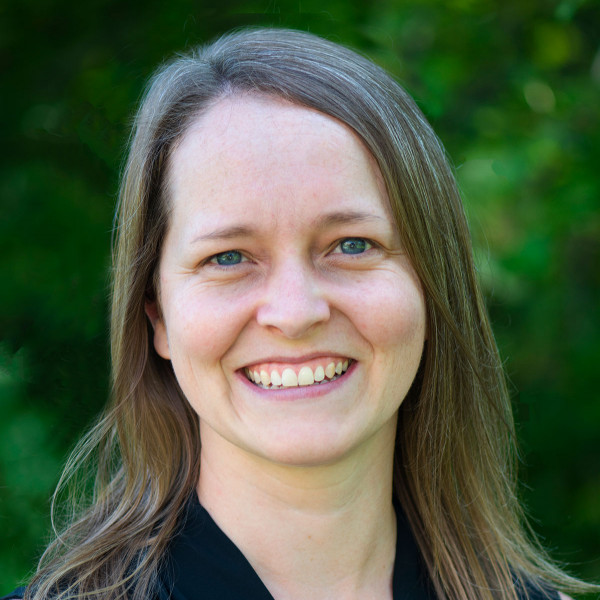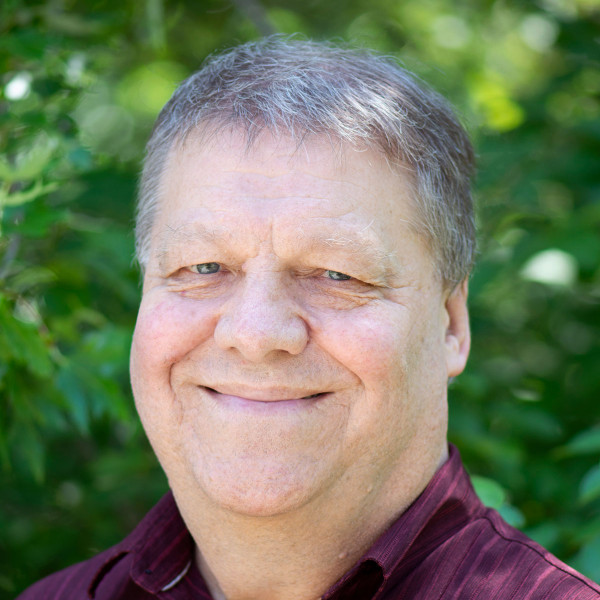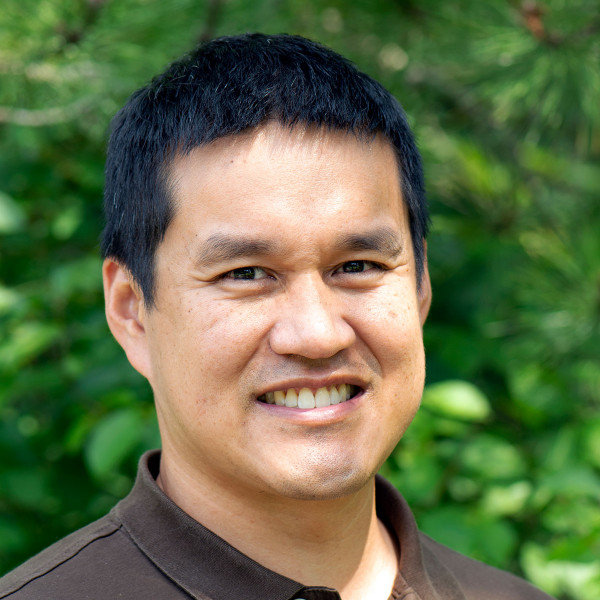Search
Search
Our first event
Introducing The Gray Centre for Mobility and Activity
This virtual session on Oct. 21 presented a selection of the latest research and treatments in mobility and activity health care.
Watch a recording of the event.
Hear presentations from:
Sue Peters, PhD
Wireless Neuroimaging During Mobility to Predict Recovery Trajectories after Stroke
Stroke survivors say their top rehabilitation priority is to regain the ability to walk. Yet, one out of three stroke survivors do not walk in their community after discharge from rehabilitation. Though a stroke damages the brain, clinicians fail to use brain measures to guide the rehabilitation process. The problem is that there are no proven neuroimaging predictors of mobility recovery. Excitingly, wireless neuroimaging can now allow us to discover more ecologically valid data. Learn more about the possibilities of collecting neuroimaging data using wireless technology during mobility tasks (e.g., overground walking, stairs) at multiple timepoints during a patient’s rehabilitation stay.
Swati Mehta, PhD
Virtual Physical Activity Programming During Pandemic
The current pandemic has reduced access to safe, monitored physical activity (PA) programs for persons with spinal cord injury (SCI). Inactivity can contribute to a multitude of secondary complications including worsening physiological and psychosocial health. Learn about the use of telerehabilitation for continuing activity engagement without the risk of virus exposure.
Dr. Manuel Montero-Odasso
Mobility and Cognition. The Collision of 2 Giants
Until recently, cognitive and mobility research in older persons has been performed in silos, creating knowledge gaps and obscuring the shared mechanisms that cause both cognitive and mobility impairments. Considering cognitive and mobility impairments separately is not only inefficient but it does not acknowledge the reality that leads to insidious disability in older people caused by dementia and falls. Learn more about our research in cognition and mobility.
Stephanie Cornell, MPT
Who, What, When? Using Technology in Rehab
Parkwood Institute is home to specialized rehabilitation programs with access to some of the most advanced rehab technologies in Canada. Effective and appropriate use of rehab technology means that our patients receive the best care possible, when they need it. But there needs to be a coordinated plan in place to ensure both competency in technology use and sustainability over the long-term. Learn more about our training, education and evaluation model for utilizing rehabilitation technology in practice.
Using technology to support motor recovery following stroke: A panel discussion
An ever-growing body of evidence supports the use of technology-based interventions for physical rehabilitation in stroke, yet their use in clinical practice has traditionally been low compared to behavioral interventions.
This presentation provides an overview of the technologies and devices for motor rehabilitation post stroke, the evidence for their use, and the results from a national survey of awareness and use of these technologies among physical and occupational therapists.
The panel discussion examines the barriers that limit awareness and use of technologies, how to implement these therapeutic options in practice and educate more researchers, clinicians and patients on their importance. The panel consists of researchers, a therapist, an administrator, a physiatrist and a person with lived experience.
Presenters: Amanda McIntyre, Marcus Saikaley, Manny Paiva, Karen O'Neil, Vern Robinson, Robert Teasell
View the video event: Using Technology to Support Motor Recovery Following Stroke
This event took place on June 30, 2022
Ali Bateman
Ali Bateman, MD
Assistant Professor, Schulich School of Medicine and Dentistry
Acquired and Traumatic Brain Injury; Spinal Cord Injury
Dr. Ali Bateman is a physiatrist at Parkwood Institute and an Assistant Professor in the Department of Physical Medicine and Rehabilitation Schulich School of Medicine & Dentistry at Western University. She is also an Associate Scientist at Lawson Health Research Institute, and the Quality Improvement Lead in the Department of Physical Medicine & Rehabilitation.
Dr. Bateman completed her medical degree and residency training at Western University, and is currently completing a master’s degree in Quality Improvement and Patient Safety through the Institute of Health Policy, Management, and Evaluation at the University of Toronto. She is also certified by the Canadian Society of Clinical Neurophysiologists and holds the designation of CSCN Diplomate (EMG). As a consultant physiatrist, Dr. Bateman provides care in acquired brain injury and spinal cord injury rehabilitation programs and the electrodiagnostic laboratory at Parkwood Institute.
Her research interests centre on quality improvement, patient safety, and knowledge translation with the aim of achieving best practices so that all persons with spinal cord and/or brain injury receive the best quality care.

Caitlin Cassidy
Caitlin Cassidy, MD
Assistant Professor, Schulich School of Medicine and Dentistry
Childhood Onset Conditions; Implementation Science and Education
Dr. Caitlin Cassidy is a physiatrist at Parkwood Institute and an Associate Professor in the Department of Physical Medicine and Rehabilitation, and is also cross appointed to the Department of Paediatrics. Her primary clinical and research roles revolve around the Transitional and Lifelong Care (TLC) program at Parkwood Institute. The TLC program provides longitudinal rehabilitative care to adolescents and adults living with a physical disability of childhood onset, many of whom experience mobility challenges and may struggle to find accessible opportunities to increase their fitness and activity levels.
Dr. Cassidy’s research interests include the natural history and long-term outcomes of people with these conditions, and collaborates closely with Dr. Laura Brunton from the School of Physical Therapy at Western University to determine the impacts that access to activity and wellness programming have on pain, fatigue and other outcomes for people with cerebral palsy and spina bifida. Dr. Cassidy also acts as the discipline lead for Musculoskeletal Medicine in undergraduate medical education at Schulich School of Medicine & Dentistry at Western University.

Dalton L. Wolfe
Dalton L. Wolfe, PhD
Lawson Scientist, Parkwood Institute Research
Implementation Science and Education; Spinal Cord Injury
Dalton Wolfe is a Scientist at Lawson Health Research Institute, an Assistant Professor in the Faculty of Health Science and leads the Research 2 Practice (R2P) team, which is a unique research program within Parkwood Institute that focuses on strategies for generating evidence and implementing best practice within rehabilitation. Professor Wolfe’s primary research interest is in the area of knowledge mobilization and best practice implementation with a focus on physical activity and activity-based therapies in spinal cord injury and brain injury rehabilitation.
Professor Wolf also co-leads the Ontario SCI Implementation, Evaluation and Quality Care Consortium, which focuses on implementation of quality indicators towards the enhancement of care across the 5 academic health centres involved in SCI rehabilitation in Ontario. As part of the Parkwood Rehabilitation Innovations in Mobility Enhancement initiative (PRIME), Professor Wolfe is focused on enhancing clinical decision-making to improve locomotor and other movement-related outcomes with activity-based therapies such as robotic, manual and FES-assisted therapies. As with many of the R2P initiatives this involves implementation science and participatory research methods to put in place practice-based research infrastructure that enables iterative knowledge generation as well as implementation. Trainees work alongside clinicians, administrators and persons with lived experience to tackle clinically relevant questions.

Eldon Loh
Eldon Loh , MD
Associate Professor, Schulich School of Medicine and Dentistry
Chronic Pain
Dr. Eldon Loh is a Physiatrist at Parkwood Institute and an Associate Professor in the Department of Physical Medicine and Rehabilitation at the Schulich School of Medicine and Dentistry at Western University. He completed residency training in Physical Medicine and Rehabilitation at the University of Alberta in 2010 and a clinical fellowship in interventional pain management in 2011. His research interests include improving the management of chronic neuropathic pain after spinal cord injury, and the development of novel and improved techniques for interventional pain management of axial spine pain.
He is Chair of the panel that developed and updates the Canadian Best Practice Guidelines for Neuropathic Pain after spinal cord injury and works with international partners to improve point-of-care tools for implementing the guidelines. His interventional pain research focuses heavily on a bench to bedside approach, utilizing anatomical findings to inform clinical practice. He has also examined the impact of Ontario’s healthcare utilization of different interventional procedures such as radiofrequency ablation and paravertebral nerve blocks.
